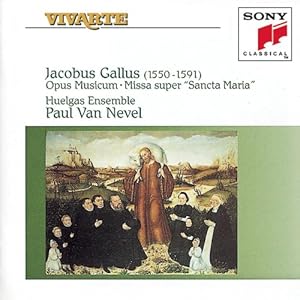The Year in American Music 1948 includes a list of "the most important world premieres which took place in this country during the calendar period of this Yearbook, i.e. June 1947 to May 1948, inclusive". Over 300 composers are listed, with over 500 works. I certainly hadn't heard of most of the composers, let alone their compositions. Many of the premieres are mentioned in the book's main chronological section, so I suppose they're the most important of the most important:
James Aliferis: Symphony no.1
Samuel Barber: Knoxville: Summer of 1915; Medea, ballet suite
Marion Bauer: Sun Splendor, for orchestra
William Bergsma: The Fortunate Islands, for orchestra
Nick Bolin: California Sketches, for orchestra
Henry Brant: Symphony no.1
Alexander Brott: Fancy and Folly, for orchestra
Henry Cowell: Big Sing, for orchestra; Hymn and Fuguing Tune no.2, revised; Short Symphony
Paul Creston: Fantasy, for trombone and orchestra
Norman Dello Joio: Concerto for harp and chamber orchestra; Symphonic Dances
David Diamond: Music for Shakespeare's Romeo and Juliet; Symphony no.4
Edoardo Di Biase: Music for Orchestra
Walter Eiger: American Youth Overture
Herbert Elwell: Pastorale, for voice and orchestra
Alvin Etler: Passcaglia and Fugue, for orchestra
Grant Fletcher: An American Overture
Isadore Freed: Princess and the Vagabond, opera
Edwin Gerschefski: Half Moon Mountain, for baritone, women's chorus, and orchestra
Don Gillis: The New America, for orchestra; Portrait of a Frontier Town
Percy Grainger: The Power of Rome and the Christian Heart, for band
Camargo Guarnieri: Prologo e Fuga, for orchestra
Guido Guerrini: La Citta perduta, for mezzo, bass, chorus, and orchestra
Roy Harris: Mass for men's voices and organ; Theme and Variations, for accordion and orchestra
Philip Henry: Pacific Nocturne
Frederick Jacobi: Symphony in C; Two Pieces in Sabbath Mood, for large orchestra
Walter S. Jenkins: Prelude and Passacaglia, for orchestra
Ernst Krenek: Symphony no.4
Dai-Keong Lee: Capriccio for Band
Benjamin Ludlow: Fantasy on Christmas Carols
Otto Luening: Evangeline, opera
Alan Macneil: Procession of the Kings from Act II of Macbeth
Gian Francesco Malipiero: Symphony no.4
Bohuslav Martinu: Three Madrigals, for violin and viola
Harl McDonald: Saga of the Mississippi, for orchestra
Peter Mennin: Fantasia for Strings
Darius Milhaud: Sonata a trois, for violin, viola, and cello
Douglas Moore: Farm Journal, suite for orchestra
Jerome Moross: Ballet Ballads
Harold Morris: Symphony no.3, "Amaranth"
Nicolas Nabokov: The Return of Pushkin, for high voice and orchestra
Herman M. Parris: The Hospital, suite for orchestra
Vincent Persichetti: Symphony no.3
Walter Piston: Symphony no.3; Symphonic Suite
Quincy Porter: Viola concerto
Karol Rathaus: Chorus from Iphigenia in Aulis
Gardner Read: Pennsylvaniana, suite for orchestra
Wallingford Riegger: Symphony no.3
Leroy Robertson: Trilogy, for orchestra
Bernard Rogers: Symphony no.4
Robert Rohe: Prelude, for orchestra
Artur Schnabel: Rhapsody for Orchestra
Tom Scott: Johnny Appleseed, portrait for orchestra
Elie Siegmeister: Symphony no.1
David Stanley Smith: Quartet no.10
Igor Stravinsky: Orpheus, ballet; Symphonies of Wind Instruments, revised
Alexander Tansman: Symphony no.7
Virgil Thomson: The Seine at Night, for orchestra
Ernst Toch: Hyperion: A Dramatic Prelude, for orchestra
Godfrey Turner: Gregorian Overture
Heitor Villa-Lobos: Madona, for orchestra; Mandu Carara, symphonic poem
George Volkel: Symphony of Psalms
Robert Ward: Symphony no.2
George Wargo: Symphony no.1
Powell Weaver: Fugue for Strings
Alec Wilder: Piece for Orchestra
Efrem Zimablist: Violin concerto in C sharp minor
As I look over this list I realise it's really just a vain attempt to make this blog fodder for obscure Google searches...
Of the 77 works listed, I've heard 6. And yes, I did look thoroughly on ArkivMusic to see how many of the works are currently available in recordings, and the answer is 19, so I suppose 6 isn't too bad. (And of the 66 composers listed here, 21 didn't appear on ArkivMusic at all.) What of those works that aren't currently available - have any or many of them ever been recorded? And more to the point, are they worth recording? Are we missing out on some gems? Could George Wargo's Symphony no.1 be a masterpiece? Who the hell was George Wargo anyway? What about the intruigingly named
Half Moon Mountain by Edwin Gerschefski? Well there's an interesting story to that - it was inspired by, and uses the text of, a
Time magazine article about a recluse named Gilbert Pitt; read about it
here. According to
The Year in American Music, "The ballad, written in four sections, begins with a spectacular choral repetition of the title; it combines folksy rhythms with romantic themes contrasted to the more raucous sounds of automobile civilization". Will I ever hear this work?
Lacking the benefit of hindsight (or excellent foresight), The Year in American Music attaches no significance to one premiere in Los Angeles in April 1948: John Cage's Sonatas and Interludes for prepared piano, or "Sonata and Interludes, for piano" as it appears in the list. Well - who knew? Americans were perhaps more interested in "A festival of three concerts devoted exclusively to the music of Ernest Bloch" at Juilliard in November 1947 ("one of the great creative figures in the music of our day"); or attending a February 1948 performance in New York of music by "One of the greatest but most rarely heard masters of contrapuntal choral music of the sixteenth century" - Josquin des Prez; or Wanda Landowska playing Book I of Bach's Well-tempered Clavier, where she "shattered tradition in the employment of tempi in many of these works"; or perhaps being wowed by "A Wunderkind of the baton, eight-year-old Ferruccio Burco of Milan, Italy" conducting an orchestra at Carnegie Hll on February 28 in a program of mostly preludes and overtures. In the New York Sun, Irving Kolodin wrote, "Does driving a car make one a mechanic? He is a new kind of musical phenomenon - a backseat driver, rather than a leader or conductor... until he goes out and builds a vehicle of his own, he can hardly be considered a musical technician in any mature sense". Thomas Beecham is quoted as saying, "The child should be in a kindergarten, sucking a lollypop".







